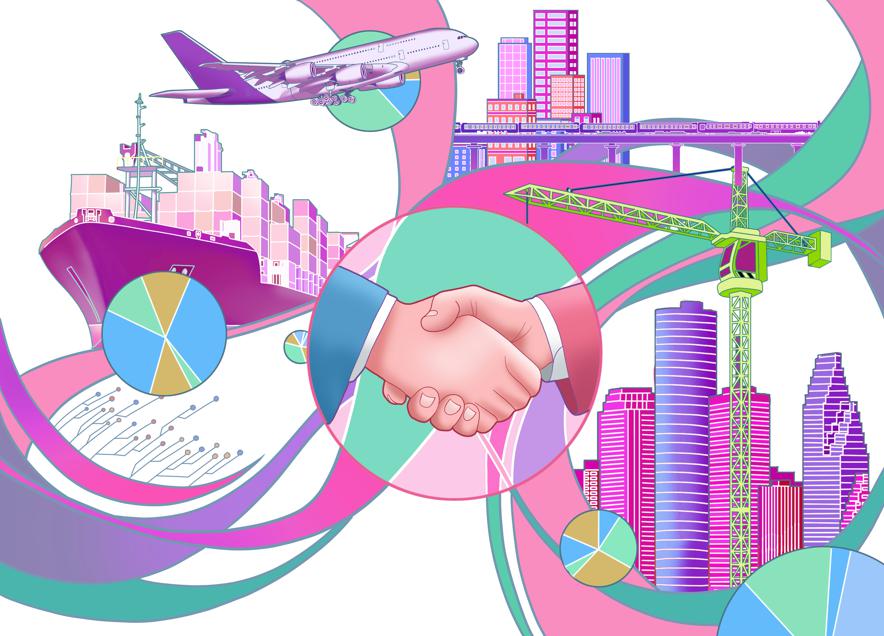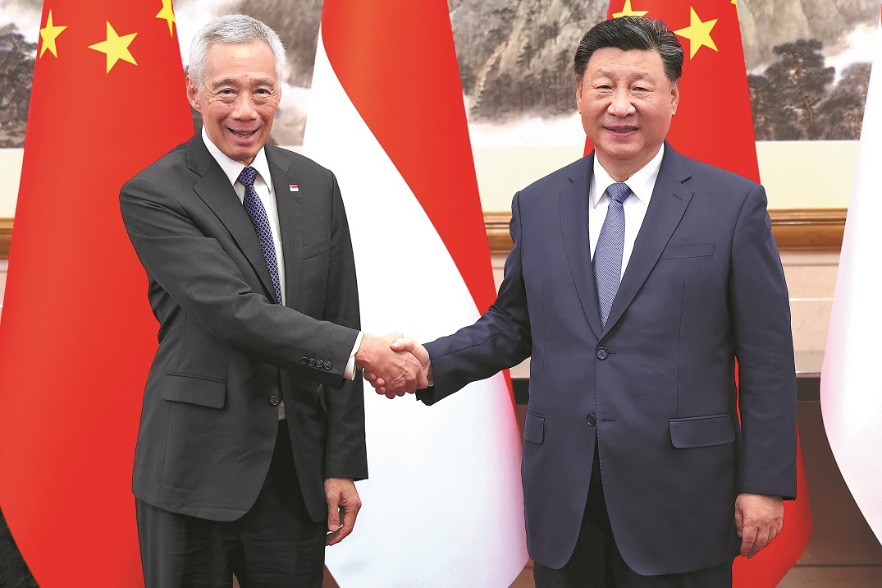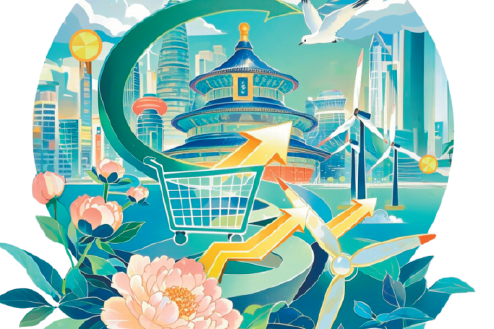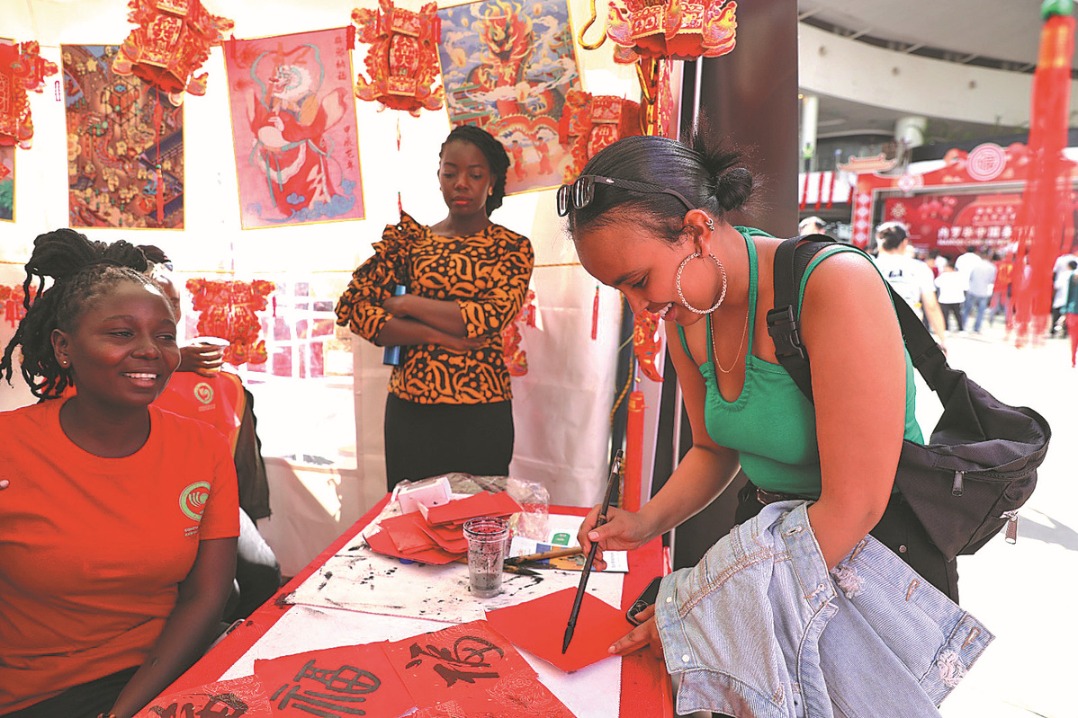Belt and Road a public good for countries of Global South


Being committed to improving infrastructure connectivity and providing public goods, especially for countries in the Global South, the Belt and Road Initiative has emerged as a transformative force in international relations, prompting an increasing number of countries to align their developmental agendas with the China-proposed initiative.
The core philosophy of the Belt and Road Initiative revolves around cooperation, connectivity and common prosperity. The initiative is a testament to China's willingness to engage with the world on a big scale, transcending traditional notions of power politics. Rather than being a geopolitical tool, as some Western observers allege it to be, the Belt and Road Initiative is a platform for economic collaboration and development. It seeks to bridge infrastructure gaps, improve trade connectivity, and boost economic growth especially in regions that have historically been marginalized or underserved.
One of the most striking features of the initiative is its capacity to provide public goods. Infrastructure facilities such as highways, railways, ports and energy built under the Belt and Road framework serve as vital public goods for the Belt and Road countries, facilitating trade, reducing transportation costs and promoting development.
The effectiveness of the Belt and Road Initiative in delivering these public goods cannot be overstated, nor can be their scale and scope. Trillions of dollars have been committed to financing infrastructure projects across Asia, Africa, Europe and other regions.
These investments have the potential to transform economies, lift millions of people out of poverty, and create new opportunities for expanding trade and collaboration. By helping build mega, multiple and important infrastructure facilities in many countries, China has become a global leader in infrastructure development and harnessed its resources and expertise to assist countries and regions in overcoming developmental challenges and boosting economic growth.
An increasing number of countries in the Global South — such as Pakistan, Kazakhstan, Egypt, Indonesia, Malaysia and Cambodia — have aligned their development agendas with that of the Belt and Road development plan because they see the initiative as a means to address their own developmental needs as well as to promote and gain from shared prosperity.
The Belt and Road Initiative's appeal lies in its flexibility and adaptability. Rather than adopting a one-size-fits-all approach, Belt and Road countries can engage in multilateral cooperation under the initiative's framework based on their unique circumstances and priorities. This approach respects the sovereignty and strategic freedom of countries. By working closely with individual countries, the Belt and Road Initiative can help meet their specific needs and contribute more to their sustainable growth.
Moreover, the initiative is not limited to physical infrastructure projects. It encompasses a wide range of activities, including policy coordination, trade facilitation, financial integration and people-to-people exchanges, acknowledging that development is not only about roads and bridges but also about fostering cooperation, cultural understanding and sustainable economic practices.
Critics of the initiative often raise concerns over debt sustainability, environmental impacts and the potential for political influence. While these concerns are valid and should be addressed through responsible project planning and execution, it is important to realize that the Belt and Road Initiative represents a significant departure from traditional geopolitical strategies. It is grounded in the idea of win-win cooperation in which all participating countries stand to benefit from the Belt and Road projects.
Some countries may have faced challenges in servicing their Belt and Road Initiative-related loans. To address this concern, China has been engaging with partner countries to renegotiate loan terms and provide debt relief where necessary. This demonstrates China's commitment to ensure Belt and Road projects contribute more to the development of partner countries without burdening them with unsustainable debt.
As to environmental considerations, China has been incorporating green and sustainable practices into the Belt and Road projects, emphasizing the importance of environmental protection and addressing ecological challenges.
In September 2021, China announced that it would not build (or help build) any more new coal-fired power plants overseas. In fact, as China has become a global leader in renewable energy, including solar and wind power, the initiative can help developing countries secure energy supply through clean energy.
China is now a leader in electric vehicle production and sales, too, and therefore it can help other Belt and Road countries develop EV manufacturing and building charging infrastructure. This would lead to economic growth, job creation and improvement in living standards while mitigating the impacts of climate change on people and the environment.
Hence, it will not be an exaggeration to call the Belt and Road Initiative a remarkable endeavor that transcends geopolitics.
That the United States has been busy preparing infrastructure-related proposals, such as the "Global Partnership of Infrastructure and Investment", proposed in 2022, and the "India-Middle East-Europe Economic Corridor", announced at the G20 Summit in New Delhi in August, is a testimony to the success of the initiative and how huge an impact it is having on the world.
Looking forward, despite the challenges, the initiative represents a paradigm shift in global cooperation, one that prioritizes shared prosperity and mutual growth over power politics. In an increasingly interconnected world, the initiative highlights the importance of cooperation and collaboration to address the pressing challenges of our times and usher in an era of greater prosperity.
The author is a professor of political science of the School of Public Affairs, Zhejiang University.
The views don't necessarily reflect those of China Daily.
If you have a specific expertise, or would like to share your thought about our stories, then send us your writings at [email protected], and [email protected].


































